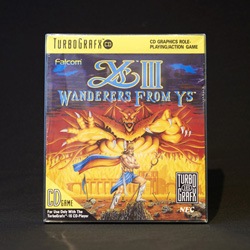|
|
 Ah, Ys III. A troubled child if ever there was one. Rightly regarded as the black sheep of the series, it was a major departure from the series' roots, in the vein of many NES-era classic series sequels. Sadly, this was less on par with the quality of Super Mario Bros. 2 than it was on par with Castlevania II: Simons Quest. Insofar as the original games resembled a stripped down Legend of Zelda, Ys III resembles a stripped-down Zelda II: The Adventure of Link, only less polished. The overhead view is replaced with side-scrolling combat, and Adol now presses a button to swing his sword, which was quite a controversial change at the time. He can also jump, and there is a modest amount of platforming. The story is much smaller in scope, now focusing instead on the plight of a mining town, rather than uncovering a lost legend. Adol accompanies his friend, Dogi (formerly known as Colin in Ys Book I & II), back to his homeland, which is being overrun with monsters. Along the way, he encounters his childhood friends, Elena and Chester, who are tied into the reason behind the monsters'' appearance. It''s a much simpler story, befitting a much simpler game. It''s also a much shorter game, and can be completed in about five hours. The Turbo version is much easier than its Genesis and SNES counterparts, with a level cap of 16. Each level gained grants a massive boost to Adol''s strength and defense, and the gameplay has a very unbalanced feel as a result; you''ll typically start an area vastly underpowered, gain a level, and still not be quite strong enough to take on the boss. Gain one more level, and you''ll suddenly bulldoze your way through all the enemies and take out the boss with minimal effort. Plus, the game runs very choppily, scrolling in jerky chunks that only serve to further undermine the gameplay. Additionally, much less money went into the localization of this game. Where Ys Book I & II had professional voice actors, like Michael Bell and Alan Oppenheimer, Ys III appears to have been voiced by whomever the localization office could find to hand. Chester makes a game effort, but he winds up chewing the scenery more than anything else. Everyone else appears to have no interest in even trying to act well. Elena sounds vaguely drugged, and the final boss sounds like he''s talking in his sleep. The shining, saving grace of this game is the music. Mieko Ishikawa took over all the composing duties for this game, and she did a phenomenal job. The compositions are great, and Ryo Yonemitsu''s arrangements are bright, synth-heavy, and powerful. They give a driving intensity to the proceedings that elevates a rather pedestrian game beyond its bland trappings. It''s hard to recommend this game. It''s not irredeemably bad, but not even the soundtrack makes it anything more than mediocre. The music is definitely worth tracking down, though. |

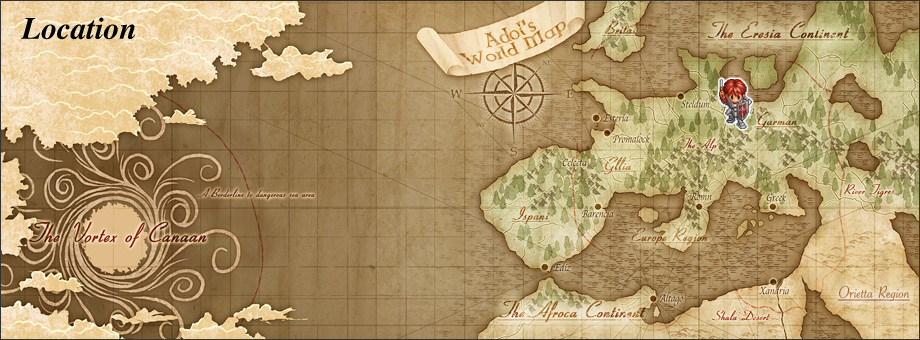
Screenshots
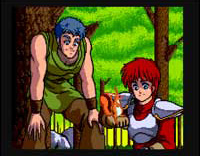 |
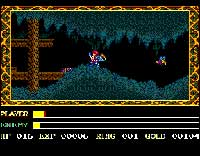 |
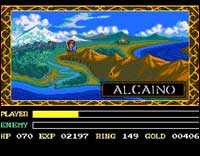 |
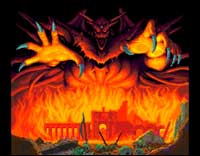 |


